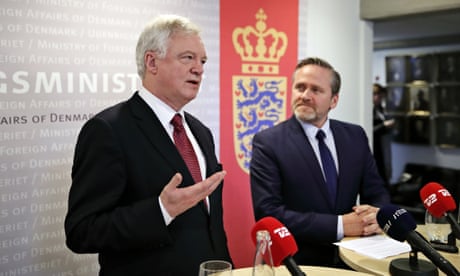Shubhankar Dam in The Friday Times
From 1991 to 1996, four residents of 36 Poes Garden, Chennai—J Jayalalithaa, the chief minister of Tamil Nadu and her foster family—amassed a 3,200% increase in wealth. This staggering surge, a rate of superhuman returns, beggars belief. What begot this? Prodigious business acumen? Or a colossal abuse of public office?
In June 1996, one Subramanian Swamy filed a complaint against Jayalalithaa alleging assets in titanic disproportion to her accredited sources of income. Investigations laid bare an incestuous web of businesses and vicariously held properties. The three other residents of Poes Garden, VK Sasikala, J Elavarasi, and VN Sudhakaran, appeared deep in cahoots with the matriarch. In Jan. 1997, they, too, were arraigned alongside the alleged mastermind.
The matter gingerly inched through India’s legal complex, wobbling from one court to another. Calendars turned, as parties wrangled over legal process. Two decades went by.
On February 14, 2017, at last, the final word. The Indian Supreme Court delivered a decisive verdict. What it enounced should put public officials, politicians and corporates, too, on alert.
Presented with fawning tributes on birthdays or other times, politicians holding public offices must turn them down: that is the only legal option now. No longer can they summon the alibi of customary practice-insistent adulation of their devotees-to fatten their bank balances
The conspiracy, the crime, the charge
Jayalalithaa was charged with criminal misconduct under the Prevention of Corruption Act, 1988: possessing, directly or through a person, while in public office, resources or property disproportionate to one’s known sources of income—something the public servant cannot satisfactorily account for. Her familial acolytes were indicted for criminal conspiracy and abetment.
Persons conspire, the Indian Penal Code, 1860, says, if two or more agree to do an unlawful act or a lawful act by unlawful means. Persons abet an offence, the code adds, if they intentionally aid others in an unlawful act.
The trial court, and later, the high court, distilled the facts, weighed the evidence, and applied the law. The first court convicted; the latter acquitted. Why? They disagreed on all counts: facts, evidence and the law. The Supreme Court stepped in, and broke new ground. Measuring disproportionate assets will never be the same again.
Tamil Nadu CM Jayalalithaa was charged with criminal misconduct under the Prevention of Corruption Act, 1988: possessing, directly or through a person, while in public office, resources or property disproportionate to one’s known sources of income-something the public servant cannot satisfactorily account for
Accounting for criminal income
Jayalalithaa and her aides asserted large incomes from assorted sources: business, agriculture, loans, interests, gifts, rentals, and sale of party literature. They produced income tax returns as proof. Income tax officials had accepted these documents. So, they sufficed as proof, all four optimistically pleaded. The Supreme Court rubbished this approach. Tax laws are distinct from anti-corruption rules. Income tax officers only assess incomes; they don’t bother with sources, the court insisted.
In Sept 1958, Indian police detained one Piara Singh as he ventured to cross into Pakistan. Searches revealed a sum of Rs65,500 on his person; interrogations revealed a gold-smuggling racket. Officials quickly seized his cash. Of the impounded sum, Rs60,500 was Singh’s income from undisclosed sources, income tax officers assessed. It was liable to tax.
Singh protested. Smuggling was his “business,” he told the Supreme Court. The impounded cash amounted to a “business loss”. It should be tax-exempt. The court agreed. Tax laws are catholic—they apply to all profits and losses, licit and illicit. The sources don’t matter. So, Singh’s business loss was indeed tax-exempt.
Anti-corruption law is different: It obsesses over sources. The 1988 Act says: If charged, a public servant must satisfactorily explain the disproportionate assets through his or her known sources of income, that is, “income received from any lawful source”.
Jayalalithaa had massive incomes but no evidence of their legality—no credible records, witnesses, explanations or inferences. The court affirmed the charge against her. A clean bill of financial health from the tax department, in other words, won’t ease matters in an anti-corruption court. Independent verification is the key.
But that’s not all. The court went further—much further. It proscribed a commonly asserted source of income, and that should alarm politicians in India even more.
Tax laws are catholic-they apply to all profits and losses, licit and illicit. The sources don’t matter. Anti-corruption law is different: It obsesses over sources
New law of public affection
Jayalalithaa’s birthdays were an annual orgy of love and presents. Cash, foreign remittances, jewelry, sarees, and silver items—her democratic devotees inundated her with them, she claimed.
Are such gifts lawful sources of income in an anti-corruption context? No, the court emphatically said. They are “visibly illegal and forbidden by law”. Gifts are bribes by another name. Legalising them would erase the bar on bribes, it reasoned.
Presents to public servants come in many forms. Some are designed to induce or reward abuse of office. Others come with no manifest motive. They are “simply” gifts. But these, too, are unlawful, the court pronounced. Why?
Gifts are “likely to influence [a] public servant to show official favour to [the] person” offering them, if opportunities arise. Opportunities, though, may arise in umpteen, unpredictable ways. Many citizens are likely to have business to transact with, say, a minister (get a policy altered), bureaucrat (get a permit issued) or police officer (get a matter investigated).
Are gifts from all citizens unlawful? Relatives, friends, acquaintances, too? The court didn’t say. But if so, a generous embargo on presents is a revolutionary piece of reasoning.
Presented with fawning tributes on birthdays or other times, politicians holding public offices must turn them down: that is the only legal option now. No longer can they summon the alibi of customary practice—insistent adulation of their devotees—to fatten their bank balances.
The bar applies to all public servants and corporates, not just politicians. Under scrutiny for purportedly spinning a web around public officials to promote business interests, the Essar Group defended its practices in an affidavit to the Supreme Court in Nov. 2015. Small gifts and favors to government servants are “common courtesies”, it claimed. They aren’t improper, much less illegal. They are illegal: The verdict makes it emphatically clear.
Declaring illegality is the easy part; proving criminal collusion is much harder. But corrupt politicians, corporates and their handlers, be warned. A new judicial zeal is doing the rounds.
Poes Garden: house of crimes
Jayalalithaa invited her friend Sasikala to the residency at Poes Garden in 1987. Together, they ran two business partnerships. Later, Elavarasi and Sudhakaran, Sasikala’s relatives, were inducted into the home in 1991 and 1992, respectively.
The new residents had no business experience or sources of income. Yet, they acquired six companies, and held directorships. (More firms were incorporated later.) Accounts linked to Jayalalithaa and Sasikala funded the acquisitions.
The companies, originally, had nothing of worth: funds, assets, loans or anything else. Not even bank accounts in some cases. But, suddenly, they stirred into brisk action. They surveyed and negotiated deals, bought land, and executed sale deeds. They also operated some 50 bank accounts. Cash promiscuously flowed in and out. No walls separated them. Intriguingly, that is all the companies did: hoard properties and move cash around.
These were shells, not companies. It strained credulity to believe that they transacted ordinary business. The Supreme Court did not believe, either. Business registrations, deals, transfers, appointments, resignations had remarkable synchronies. These weren’t coincidences, the court inferred. The collaborators were part of an elaborate commercial incest. The firms, their holdings, and deals were shams, contrived to lend an ounce of entrepreneurial legitimacy.
Poes Garden was a conspiratorial den, and Jayalalithaa masterminded it, the court found. She funded the partnerships. These, in turn, funded the companies. Those, then, bought properties. The 50 bank accounts were effectively one: Jayalalithaa’s. Guilty, all of them, the court decided.
The verdict will resonate far beyond the immediate facts. It has an air of urgency. There’s a readiness to peel away legal facades, probe nooks and crannies, unite the dots and draw aggressive inferences. Gone are the days when judges willingly suspended disbelief, demanded impossible standards from prosecutors, and granted careless benefit of doubt to the accused.
It augurs well for corruption trials now underway. The decision puts undertrials on notice, and those plotting their next rendezvous with public corruption, too.
Altogether, it feels rosy it shouldn’t. Ominous clouds still lurk on the legal horizon.
This ain’t a happy ending
The verdict, again, betrays the rot at the heart of India’s criminal justice complex. For one, it ground ahead slowly, far too slowly. Two decades to litigate a criminal charge is inordinately long. This point isn’t worth belabouring—it is well known.
But another point is the systemic lack of investigative and prosecutorial independence, and the inability to hold serving public officials, particularly, political offices, to account. Lest we forget, anti-corruption sleuths didn’t pursue Jayalalithaa. A private complainant did: Subramanian Swamy. The director of Vigilance and Anti-Corruption, Chennai, joined in after a court directive. That Jayalalithaa’s political rival in Tamil Nadu, the Dravida Munnetra Kazhagam (DMK), held power in the state during the investigations only helped matters along.
A credible investigation against a sitting chief minister in India, even now, is an absurd idea. Investigations are only the beginning. Prosecutions must follow in deserving cases. It followed in this case, and quite well. But only till the DMK was in power. By August 2000, nearly 250 witnesses had been examined; just over 10 remained. The marathon trial was in its last mile.
Suddenly, it fumbled
In May 2001, Jayalalithaa and her party returned to power. Witnesses turned hostile. Prosecutors lost their zeal. The trial went awry. In Nov. 2003, the Supreme Court, in response to a petition by a DMK leader, K. Anbazhagan, transferred the trial to Bangalore. A fair trial against a sitting chief minister was impossible within the state, the court implied. Such is the rancid reality of prosecutorial affairs in India.
The trail began anew. Even there in Bangalore, prosecutors struggled. Interference lurked at every turn. The Supreme Court routinely intervened to keep matters on track—often at the dogged insistence of Swamy and Anbazhagan. Only they seemed keen to try Jayalalithaa, not the state.
Successful anti-corruption drives marry tough rules, investigative and prosecutorial independence with judicial reasonableness. India has two of these—or at least a semblance of them. The middle one is missing; it has always been so.
Without it, the Jayalalithaa-Sasikala matter will remain a celebrated exception. Without it, prosecuting high corruption in India will remain a private pastime, always directed at opposition politicians against an obstinate state apparatus, and overly reliant on courts. Without it, only lesser mortals will endure the fury of anti-corruption rules: Those more equal than others will forever remain immune.







